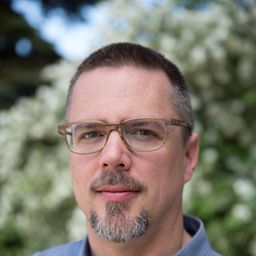
Dr Adam Muller
Sessions in which Dr Adam Muller participates
sábado 4 junho, 2016
Sessions in which Dr Adam Muller attends
sábado 4 junho, 2016
Dans le cadre de cette session, nous souhaitons faire, dans une perspective multidisciplinaire et critique, un état des lieux qui interroge doublement, à la lumière de trois axes que sont la narrativité, la temporalité et la performativité, la patrimonialisation des sujets sensibles tant sur ses rôles, ses formes et ses effets sur les sociétés qui les entreprennent, que sur sa fonction révélatrice d’un monde en changement. L’espace public laisse une place grandissante aux objets, aux li...
Most of what we experience as heritage emerges into conscious recognition through a complex mixture of political and ideological filters, including nationalism. In these processes, through a variety of devices (museums, scholarly research, consumer reproduction, etc.), dualistic classifications articulate a powerful hierarchy of value and significance. In particular, the tangible-intangible pair, given legitimacy by such international bodies as UNESCO, reproduces a selective ordering of cul...
segunda-feira 6 junho, 2016
Questions about the repatriation of cultural property, issues of access and exclusion in the World Heritage system, intangible heritage practices in conflict with human rights norms, or the ways in which the international human rights regime is interpreted as a form of cultural heritage itself: rights are now considered relevant in a broad variety of heritage situations. This is reflected in the incorporation of references to human rights in a series of key international heritage-relate...
Around the globe the planning of large-scale memorial-museum projects concerned with violent histories are frequently marred by conflict, omission, and competitions of victimhood. This problem also extends to scholarship on genocide and memory. “Moving memory” is a collaborative multi-sited research exhibition about the Armenian and Roma genocides that proposes creative solutions to these museological and scholarly conflicts around commemoration. Our multi-sited event includes two pr...
terça-feira 7 junho, 2016
The Canadian Museum for Human Rights opened to the public in September 2014. Yet this "first museum solely dedicated to the evolution, celebration and future of human rights," met serious criticism from a variety of stakeholders before it even opened its doors. These stakeholders included Indigenous and Ukrainian communities, anti-poverty activists, feminists, gay rights activists, and disability advocates who questioned some of the museum's key curatorial choices in framing issues of righ...


